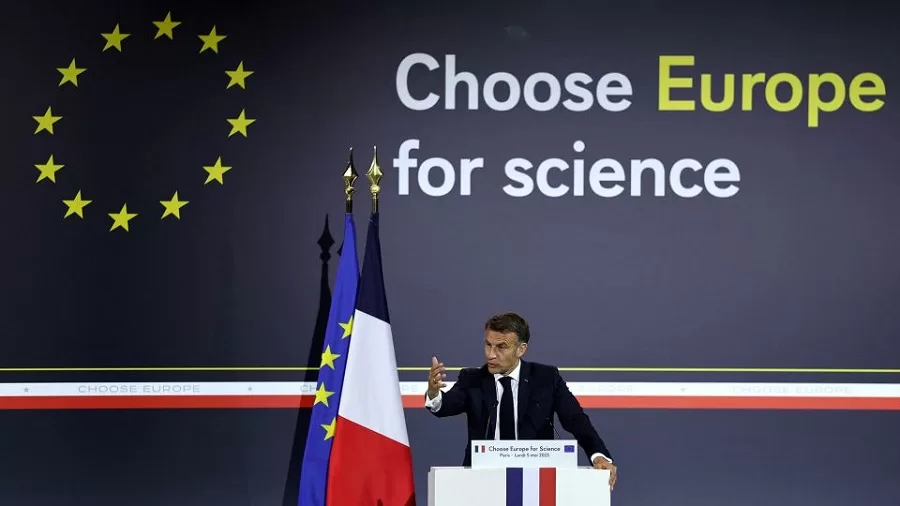Science & Environment
€500M Offer on the Table: Will U.S. Scientists Answer Europe’s Call?

- Reports from outlets such as Science Business and Reuters confirm that the European Commission has proposed a multi-year science investment strategy with expanded budgets. Still, there is no official confirmation of a €500 million fund specifically designated for U.S. scientists displaced by political decisions. International researchers remain eligible under broader ERC programmes.
- A 2024 report from the American Association for the Advancement of Science notes increased concern over DEI-related grant scrutiny in the U.S. However, no definitive number of cancelled projects is available. France and Germany have announced measures to attract foreign talent, with Campus France and the German Academic Exchange Service (DAAD) streamlining mobility programs. A confirmed additional €100 million in funding from France for this purpose is not publicly verifiable.
Europe Is Calling: What the Landscape Means for You
If you’re a researcher based in the United States, you may have felt growing uncertainty around funding stability and political influence in science, particularly in areas touching on diversity, equity, and inclusion (DEI).
Amid these changes, European institutions are presenting themselves as viable destinations for international talent.
What’s on the Table?
The European Research Council (ERC) funds frontier research across disciplines, offering grants that support long-term, high-risk, high-reward projects. These are available to scientists globally.
While there is no standalone €500 million relocation programme confirmed for U.S. researchers, the ERC’s total Horizon Europe budget (2021–2027) exceeds €16 billion. Individual Advanced Grants can reach up to €2.5 million per project.
France’s Campus France program and Germany’s DAAD continue to support researcher mobility. Though exact amounts vary year to year, they represent growing national efforts to attract top academic talent.
Here’s what eligible researchers might access:
- Long-term ERC research grants (typically 5 years)
- Mobility support through national programmes (e.g., Campus France, DAAD)
- Access to EU research frameworks and collaboration platforms
- Visa and relocation support through academic partnerships
Who Stands to Gain?
European grants are open to global applicants. Scientists working in:
- Environmental and climate sciences
- Artificial intelligence and technology
- Public health
- Social justice and policy research
…may find continued or expanded opportunities.
While there is no programme giving formal priority to researchers defunded in the U.S., many EU institutions express interest in sustaining research that has lost funding elsewhere.
Why Europe? Why Now?
European Commission President Ursula von der Leyen has consistently highlighted science and innovation as priorities. During her 2024 State of the Union speech, she pledged stronger investment in R&D and proposed legal protections for research freedom within EU treaties (European Commission, 2024).
Europe faces talent gaps in AI, biotech, and sustainable systems. National governments and universities are responding with policy and funding changes to meet this demand.
The American Shift: Tracking the Trends
Public records do not confirm a figure of “380 DEI-related projects cancelled” in the U.S. However, Inside Higher Ed and The Chronicle of Higher Education document increasing scrutiny of DEI-related academic work.
Open letters by academic groups protesting these developments have collected hundreds to thousands of signatures. While the scale of emigration among U.S. scientists is not tracked in detail, anecdotal reports suggest a growing interest in relocation among early- and mid-career researchers.
What Will the UK Do?
Despite leaving the EU, the UK has retained links to European research through the Horizon Europe association deal, reinstated in 2023.
UK Research and Innovation (UKRI) is revising its policies to support more global partnerships. Universities, including Oxford and Edinburgh, are increasing participation in European-led research projects.
Branding Science: Europe’s Playbook
Countries like France, Germany, and Spain are promoting themselves as hubs of academic freedom and scientific ambition.
- Campus France highlights its researcher visa fast-track programme
- DAAD has launched targeted initiatives for early-career scientists
- Spain’s Ministry of Science has introduced relocation incentives tied to tax benefits
These national efforts align with broader European strategies to position science as both policy and brand.
What You Can Do
If you’re in the U.S. research community:
- Review ERC’s calls for proposals and eligibility criteria
- Explore Campus France, DAAD, and EURAXESS opportunities
- Reach out to European colleagues for collaboration
If you’re in the UK academic ecosystem:
- Connect with European institutions through Horizon projects
- Offer co-hosting arrangements or shared research facilities
- Demonstrate institutional readiness for international partnerships
Final Thought
European science funding is not new, but its relevance is growing.
If the research environment in your home country is shifting, now may be the time to explore new pathways.
Europe is building an open platform for science, and the door is not closed.



















































